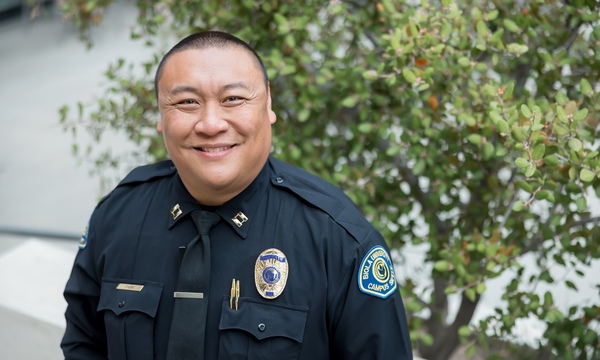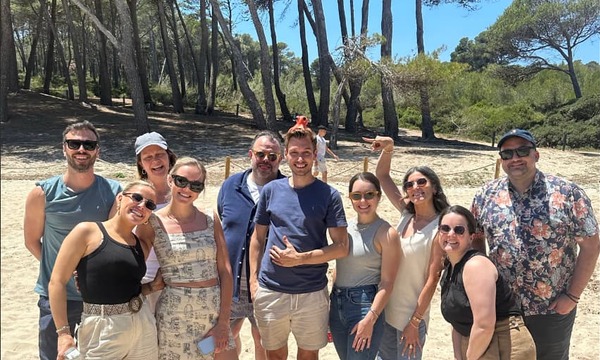This February marks the 20th anniversary of the creation of the Student Congress on Racial Reconciliation (SCORR), an initiative started by Biola’s Director of Multi-ethnic Programs & Development, Glen Kinoshita.
In his opening address at this year’s conference, Biola University President Barry H. Corey stressed the importance of SCORR’s central message.
“We should be ashamed of the way we’ve put racial reconciliation on the back burner," said Corey. "Diversity isn't just a demographic necessity, It’s not just a cultural reality. It is not a cosmetic facelift. It is a biblical call. It's at the heart of the gospel.”
SCORR was birthed during a meeting in 1995 as different Christian college representatives discussed diversity initiatives on their respective campuses. Kinoshita presented his vision for a new kind of conference — one that would bring students from Christian colleges together to celebrate diversity, and that would provide an opportunity for them to share their stories.
Those gathered unanimously agreed and offered their support, and in February of 1996, the very first SCORR conference was held, under the name, “Western Regional Multicultural Leadership Conference.”
From 1996 to 1999, students and faculty from Christian colleges and universities in Southern California attended the conference. But as the conference continued to grow in scope, it began to serve colleges up and down the West Coast, and in 2000, the name was changed to “Student Congress on Racial Reconciliation” [SCORR].
Student leadership associations from Christian colleges around the country began to require their student leaders to attend SCORR, including Biola. Some of the schools that regularly attend include Bethel University, University of Northwestern, George Fox University, Seattle Pacific University, and Wheaton College.
“The SCORR Conference is important to the mission of Biola and Christian higher education in general,” said Pam Christian, vice provost for inclusion and cross-cultural engagement. “Fellowship within the body of Christ matters to God as demonstrated in the Gospel. Creating and sustaining a 20 year dialogue concerning challenges and strategies to promote unity illustrates our institutional commitment to biblical values and to impacting the world.”
Though Kinoshita holds that the intention behind SCORR was never one of creating a national movement, but simply to meet an ever-growing need, he stands behind the essential need for a conference like SCORR in our current cultural climate.
“Following Christ is the bottom line, really. Personal growth is another one. You will be enriched as a person with different perspectives, thinking critically, being able to engage and communicate,” said Kinoshita. “How do students learn how to live in this world? How do they learn how to deal with complexity? How do they think critically? SCORR is only a weekend, but we hope that it would enhance these things.”
Over the past 20 years, SCORR has also grown in its service not only to student leaders, but to professional collegiate staff and faculty.
“We have historically targeted undergraduate students, and that has been very rich, and we want to see that continue, but we also want to see faculty and professional staff engaging in the growth and in the conversation,” said Kinoshita.“They [students] want their faculty to grow in this area.”
As a response to this growing concern, the most recent conference provided more sessions designed to equip faculty as well as students on diversity.
In addition to new sessions for staff and faculty members, this year’s conference also featured a poetry lounge, a performance by Will and Company, and keynote speaker Lisa Sharon Harper, executive director of New York Faith & Justice, and author of Evangelical Does Not Equal Republican…or Democrat and Left, Right & Christ: Evangelical Faith in Politics.
In her message, Harper brought forward an important call for students and faculty to examine the injustice present in this world.
“If we govern in a way that limits, suppresses, oppresses, twists, perverts, the capacity of human beings to exercise dominion on earth, then we are also pushing down the image of God on earth,” said Harper. “And that is why when we do injustice, we become an enemy of God.”
Several alumni also attended this year’s conference to share their reflections on the impact SCORR has had on their lives.
“I was just beginning my journey into young adulthood when I first participated in the conference that was to become known as SCORR ... Each year now that I participate in SCORR presenting workshops I've developed, I feel the need for the conference to be increasingly urgent," said alumna Erika Gieschen Bertling ('94). "Learning the skills to communicate, grow, and love as Christ loves in a cross-cultural world is not an extracurricular luxury; it is an absolute necessity for our time.”
As Kinoshita looks forward to the future of SCORR, he emphasizes its original purpose: to address the needs of this world.
“Our mission is to impact the world. You look around and there is racial tension, and just all sorts of social inequities and injustices, and so we’re hoping SCORR can be a part of people’s development and growth to be equipped to meet these needs,” said Kinoshita. “The need isn’t going away, it’s getting deeper. So, for the future we hope that we can see growth happen to where we would equip people on all levels of our institution.”
Written by Kathryn Toombs, Public Relations intern. For more information, please contact Jenna Loumagne, Media Relations Specialist, at jenna.loumagne@biola.edu or via phone at (562) 777-4061.
 Biola University
Biola University

.jpg)
